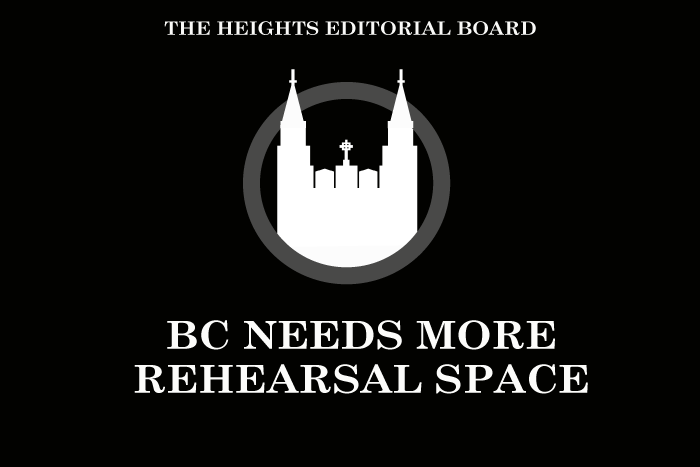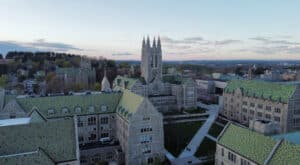In recent years, Boston College dance and a cappella groups have faced difficulty in securing rehearsal space on campus. Designated spaces for dance groups to practice is limited to Brighton Dance Studio (BDS) and O’Connell House. Other multipurpose rooms that dance and a capella groups can reserve on a yearly basis include McElroy 208, the Plex Multipurpose Rooms, and Carney 206. Other larger rooms on campus, such as McElroy 237 and Gasson 100, can be reserved from time to time.
Although BC’s current space situation can stretch—barely—to accommodate its 16 dance groups and 12 a cappella groups, the disparity in available rehearsal spots has caused significant difficulties for these groups during the busy weeks leading up to big competitions such as Showdown. During these times, teams practice more frequently and for longer intervals, which can be difficult to arrange for under the present space limitations at the University.
This issue is further complicated by the specific needs of each group for practicing their styles of dance. Larger groups such as Dance Ensemble (DE) require bigger spaces for rehearsal and also need marley flooring, a black mat-like material which is found solely on the floor of the BDS.
Other groups, such as BC On Tap, also need specific flooring to practice, as tile flooring—the most common surface among available rooms—would cause members to slip while dancing. Therefore, they also need to practice in either BDS or O’Connell House.
A capella groups have specific needs for rehearsal spaces as well. Many groups need a sound system for practice, and others, such as the Common Tones and Sharps, need a piano. Spaces with these specific resources are few at BC, and the process by which clubs reserve rooms does not account for pianos. Thus, many a cappella end up practicing in dorm lounges or rooms. If the group’s practice results in a noise complaint, however, then the group will be barred from practicing in the same dorm space again.
The limited space for dance and a cappella groups to rehearse on campus stagnates the growth of the arts at BC. Because space assignment is given out by the Office of Student Involvement based on “historic need,” larger groups that have been around for years such as DE will be given priority to use coveted facilities like the BDS. This causes smaller and newer groups, however, to be left to find less adequate spaces for practice, hindering the growth of these younger organizations.
There a few ways that the BC administration can seek to mitigate these issues. First, it is imperative that the University find a way to provide additional practice space to dance teams in the busy weeks of rehearsal leading up to showdown. BC could rent a local warehouse space or other recreational facilities, such as at a community center, to give dance teams rooms to practice before some of their most important yearly events. Showdown is one of the most highly attended events on campus all year, and the University should guarantee that the groups who make the event possible have the necessary resources to prepare.
BC should make some of its existing multipurpose rooms available to dance and a cappella groups for practice. The University could do this by providing retractable flooring that could be stored in these rooms, or replacing the floors of these rooms that are not often used except for these groups. Covering some of these rooms, such as McElroy 237, with marley flooring would give groups additional opportunities to practice.
Finally, if plans for a student center should ever be finalized, the new space should include four or five rooms dedicated to rehearsal for dance and a cappella teams. Providing these additional spaces will ensure that many communities at BC benefit from the new facilities and will promote the growth of the arts at BC.
Featured Image by Meg Dolan / Heights Editor












